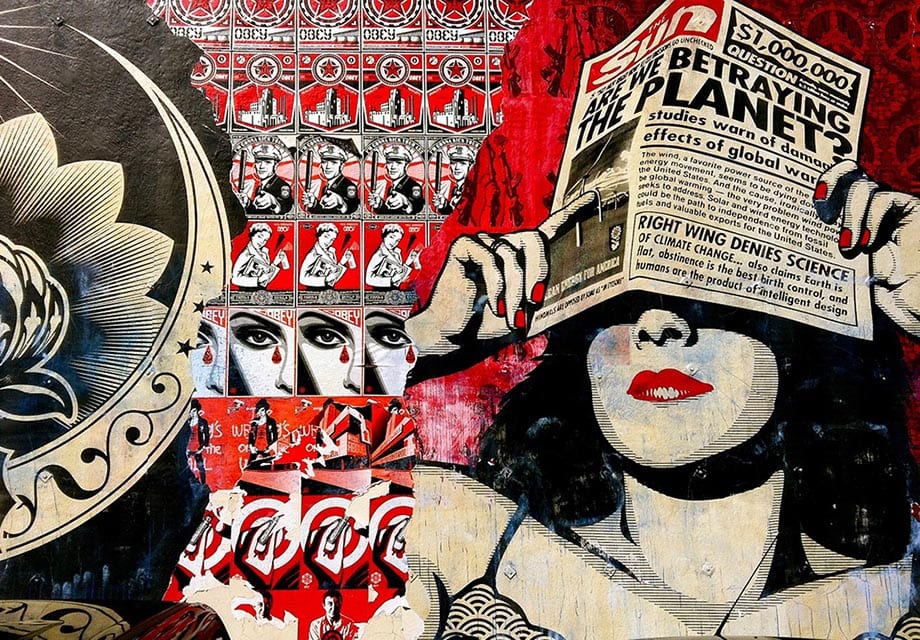Misinformation Wars: The Battle for Truth in the Digital Age
Sept 19, 2023
The Rise of Misinformation in Modern Society
The spread of misinformation has become one of the most pressing issues facing societies worldwide. In an age of rapid information sharing through social media and other digital channels, false or misleading content can proliferate astonishingly. This has fueled what some have termed “misinformation wars” – battles between those seeking to distribute inaccurate narratives for political or financial gain and those trying to combat this spread with facts.
Several factors have contributed to the rise of misinformation wars in recent years. Social media platforms like Facebook and Twitter have allowed billions of people to share content instantly but have struggled to curb harmful misinformation. The decline of traditional journalism has also played a role, as falling revenues have forced newsrooms to cut staff and reduce fact-checking. Some governments and political groups now deliberately spread false narratives as a tactic to confuse or manipulate the public.
The resulting environment has been described as an “era of post-truth politics” where objective facts hold less sway over public opinion. Misleading stories often generate more engagement than factual reporting as they tap into emotions like fear or outrage. With the pace of sharing outstripping fact-checking efforts, viral misinformation can shape perceptions before it can be debunked.
Channels and Impacts of Modern Misinformation
Misinformation now spreads through both old and new media channels. Social platforms have been repeatedly criticized for their algorithms that highlight polarizing content. In 2016, fake news on Facebook may have influenced the U.S. presidential election by promoting conspiracy theories. In 2020, a viral Plandemic video spread COVID-19 misinformation to millions on social media.
But traditional outlets also play a role. Some cable news networks promote misleading narratives for ratings. Talk radio and podcasts also frequently share conspiracy theories or unproven claims. Even authoritative sources like politicians and celebrities can inadvertently spread false information by failing to fact-check.
The impacts of misinformation wars are increasingly visible. Public trust in media and institutions has declined markedly. Misinformation exacerbated polarization during elections in the U.S. and Europe. Anti-vaccine conspiracies fueled by social media contributed to falling immunization rates. Other health misinformation likely worsened the COVID-19 pandemic as people doubted basic safety measures.
Key Players and Tactics in Misinformation Wars
A complex web of actors takes part in modern misinformation wars, each with different motivations. Populist politicians often draw on fake scandals and exaggerated threats to drum up support. Governments like Russia or China use state-sponsored disinformation to attack geopolitical foes. Domestic extremist groups in the U.S. and Europe promote racism and conspiracy theories to recruit members.
Clickbait websites propagate fake news for ad revenue. Social media influencers share misinformation to attract followers. Foreign troll farms strategically spread divisive content. All leverage the speed and scale of digital platforms to bombard the public with misleading narratives.
These players use an evolving array of tactics. Selectively edited videos and images fool viewers into drawing false conclusions. Imposter websites and social accounts mimic credible sources to lend legitimacy. Bots and fake accounts manipulate algorithms to boost disinformation. Cyberattacks compromise journalists and seed hacked materials with forgeries. PR firms hide industry propaganda behind astroturf campaigns.
Severity and Case Studies of the Misinformation Crisis
The severity of the misinformation crisis has become undeniable in recent years as fabricated narratives have impacted major world events. The 2016 U.S. election saw widespread sharing of fake news across social media, such as the Pizzagate conspiracy theory that led to a shooting. Bots and trolls linked to Russia used platforms like Facebook and Twitter to inflame polarization.
The COVID-19 pandemic also triggered an “infodemic” of misinformation downplaying the virus’s risk. Viral hoaxes and conspiracy theories fueled anti-vaccine views, while false cures like drinking bleach proliferated across social media. Public health agencies believe this severely hampered the pandemic response.
One study found over a quarter of English-language misinformation about COVID-19 could be traced back to individual social media accounts. This demonstrates how a small number of influential users can play an outsized role in spreading harmful misinformation when their content goes viral online.
Battling Misinformation Wars
Combating misinformation is a monumental challenge, but researchers have identified promising strategies. Social platforms are under growing pressure to fix their algorithms that elevate inflammatory content. Some have adopted friction measures like warning labels to reduce the spread of misinformation. Governments are exploring regulations for tech companies, including mandatory transparency reports.
Fact-checkers and media literacy programs are trying to equip the public to identify misinformation on their own. Credible journalists are focusing on pre-bunking false narratives before they go viral. New technologies may also help, like using AI to detect manipulated images and videos.
Ultimately, overcoming misinformation will require a comprehensive response from governments, tech companies, journalists, educators, and the public. The stakes are high, as the unabated spread of misinformation could further corrode public discourse and trust in democratic institutions. But with a coordinated effort to prioritize facts over fiction, modern societies may find a path back to shared truths.
Discover Unique and Valuable Articles for Your Interest
EU stands to benefit by Granting China free market status
China cuts rates to boost green energy demand

China showcases its culture to the World
Remaking Moscow lures more Chinese investment
Chinese firms extend Moscow’s rail networks
Russians show patriotism on nuclear bunker tours
Moscow hi-tech parks seek lower production costs
Despite challenges & sanctions: Russian oil & gas remain profitable
Downed Su-24 shows U.S treachery
Global Warming Is Fake: Let’s See If This is True

Chinese flocking to U.S. Real Estate and German Migrant crisis

U.S. backed Coup in Ukraine, China wins, Russia resists




